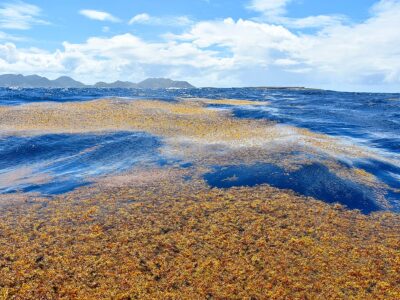
The state Department of Environmental Conservation says swimming is safe north of the Bronx to Columbia County. But most municipalities do not regularly test their stretch of river for pollution; and those that do rarely release the results quickly. In New York City, test results come out years later, averaged across the season, masking extreme events. Not so helpful, as Lamont-Doherty scientist Andrew Juhl put it in Huffington Post this week. “You can find out three years after you were in the water, if that summer, the average indicator of contamination was okay,” he said. The city Department of Environmental Protection is apparently reconsidering its stance. An official told DNAinfo on Wednesday that test results will soon be put online regularly. That’s too late for the thousands of triathletes who dove into the Hudson last Sunday, but potentially helpful information for next year.
A fire last month at Harlem’s North River Wastewater Treatment plant sent more than 2 million gallons of raw sewage into the river, but the more pervasive threat may be coming from outdated sewage treatment plants and faulty septic systems upstream.

Sparkill Creek in Rockland County had the worst results in the study, showing “unacceptable” levels of contamination 86 percent of the time, followed by Normans Kill Creek near Albany, with a 65 percent unacceptable rate, and Tarrytown Marina, Westchester County, at 56 percent. If clean water laws are enforced and infrastructure investments continue, more people will use the river for recreation, Riverkeeper president Paul Gallay was quoted as saying in the Journal News. But “if we fail to take care of the river we’ll lose the gains we’ve made and the economic benefits that go along with them,” he said.




[…] Report on the project’s progress […]
I really enjoyed reading this blog so thank you very much for posting it. It does mean a lot to me since I work in environmental sewage and drainage at http://www.watlinghope.co.uk/ and want to make sure sewage is dealt with in a safe way.